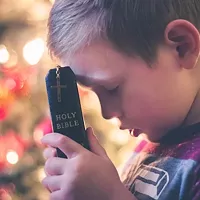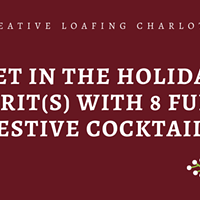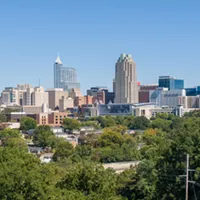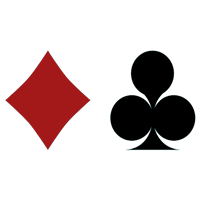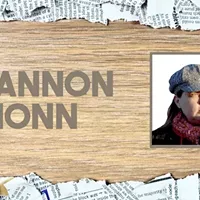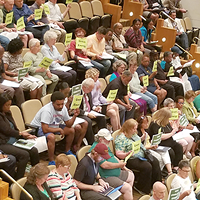Saturday, December 24, 2011
News That's 'Happy Holidays' to you
Posted By Rhiannon Fionn on Sat, Dec 24, 2011 at 12:13 PM
Two years ago, I wrote a piece for Crossroads Charlotte titled, "The Case for Saying 'Happy Holidays." In it, I make the point that humans have been celebrating mid-winter for eons in a multitude of ways.
Personally, I'm not religious and don't celebrate anything this time of year unless you count appeasing my family with gifts and overeating. If people say "Merry Christmas," I say it back. Same goes for "Happy Holidays" or "Happy Chanukah," or whatever.
If I get to go first in end-of-year holiday greetings, I'll often say, "Happy whatever it is you choose to celebrate." That makes most people chuckle. What irks me, though, are those who think they need to offer a correction: "No, 'Merry Christmas'," they'll say.
I want to respond, "Noooo, 'Happy Holidays'," but I never do, even though I know I'm right.
With that in mind, I'd like to remind you of some lesser known mid-winter holidays:
Hindus celebrate "Diwali," a five-day festival of lights that focuses on a different deity daily. The date varies on Western calendars but the festival is always the 15th day of Kartika, or the Hindi equivalent to November. This year, the celebration actually began Oct.17. It's a time when women paint their hands with henna, everyone shops for new clothes, and houses are cleaned and decorated with flowers. It's also a time to eat sweets.Buddhists celebrate Buddha's enlightenment on Dec. 8. Their celebration is Bodhi Day because they believe Buddha sat beneath a Bodhi tree until he attained enlightenment. It's a time to meditate and look for one's inner light. People who celebrate Bodhi Day often hang colored lights to represent the many ways to attain enlightenment and eat meals of rice and milk.
Pagans and Wiccans celebrate Yule, or more simply the Winter Solstice. It's a time to decorate with evergreens, dance, light candles and feast on meat and drink mead.
From Dec. 26 through Jan. 1, African Americans might celebrate Kwanzaa. It's a non-religious, non-political holiday created by Ron Karenga in 1966 as a time to honor one's heritage. Candles are lit, and many fast from sunrise to sunset. A feast is held on Dec. 31. Although there is no set menu, many people who celebrate Kwanzaa choose to prepare traditional African dishes.
Persians in Iran celebrate Sadeh, a mid-winter three-day feast that honors fire. It's customary to celebrate Sadeh on Jan. 30, a day when food is often distributed to the poor. Lamb is a staple.
Read on at CrossroadsCharlotte.org.
Let's be real, though, regardless of your spiritual leanings, the real holiday in this country is led by Santa and hails from the modern religion of consumerism.



